Detect skin cancer: How to perform a skin self-exam
How to check your skin for skin cancer
Follow these tips from board-certified dermatologists to increase your chances of spotting skin cancer early, when it’s most treatable.
If you notice any new spots on your skin, spots that are different from others, or spots that are changing, itching or bleeding, make an appointment to see a board-certified dermatologist.
Anyone can get skin cancer, regardless of skin color. It is estimated that one in five Americans will develop skin cancer in their lifetime. When caught early, skin cancer is highly treatable.
You can detect skin cancer early by following dermatologists’ tips for checking your skin. Download the AAD's body mole map to document your self-examination, or the How to SPOT Skin Cancer™ infographic and know what to look for when checking your spots.
If you notice a spot that is different from others, or that changes, itches or bleeds, you should make an appointment to see a dermatologist.
How to perform a skin self-exam
Examine your body in a full-length mirror
Examine your body front and back in a mirror, then look at the right and left sides with your arms raised.
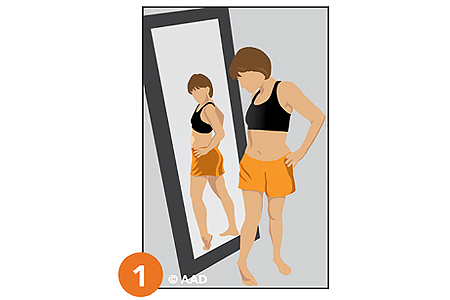
Look at your underarms, forearms, and palms
Bend your elbows and look carefully at your forearms, underarms, and palms.
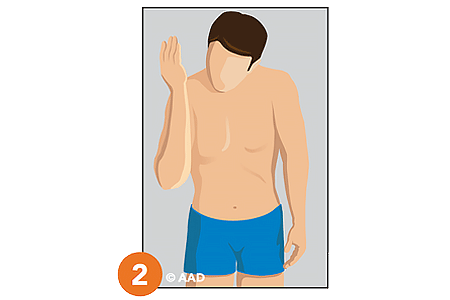
Look at your legs, between toes, and soles of your feet
Look at the backs of your legs and feet, the spaces between your toes, and the soles of your feet.
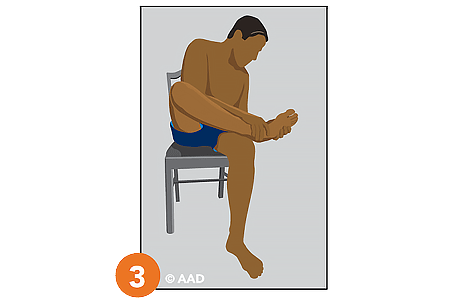
Use a hand mirror to examine your neck and scalp
Examine the back of your neck and scalp with a hand mirror. Part your hair for a closer look at your scalp.
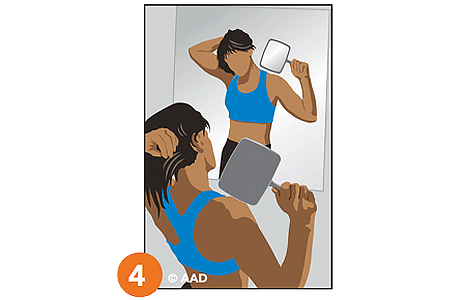
Use a hand mirror to check your back and buttocks
Finally, check your back and buttocks with a hand mirror.
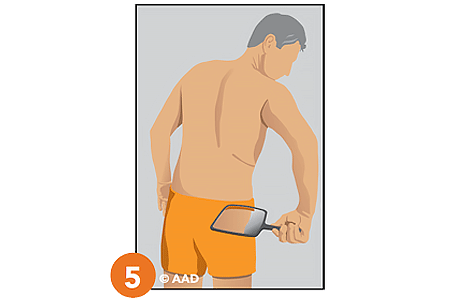
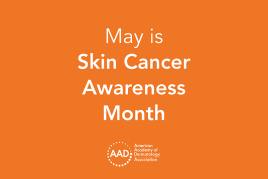 Think sun protection during Skin Cancer Awareness Month
Think sun protection during Skin Cancer Awareness Month
 How to care for your skin if you have lupus
How to care for your skin if you have lupus
 Practice Safe Sun
Practice Safe Sun
 Sunscreen FAQs
Sunscreen FAQs
 Fade dark spots
Fade dark spots
 Hidradenitis suppurativa
Hidradenitis suppurativa
 Laser hair removal
Laser hair removal
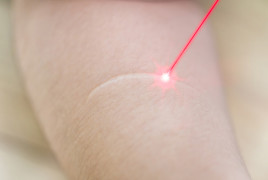 Scar treatment
Scar treatment
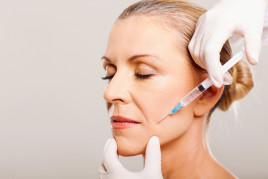 Botox
Botox
 Kids' camp - Camp Discovery
Kids' camp - Camp Discovery
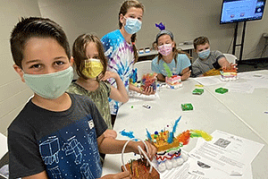 Dermatologist-approved lesson plans, activities you can use
Dermatologist-approved lesson plans, activities you can use
 Find a Dermatologist
Find a Dermatologist
 Why choose a board-certified dermatologist?
Why choose a board-certified dermatologist?